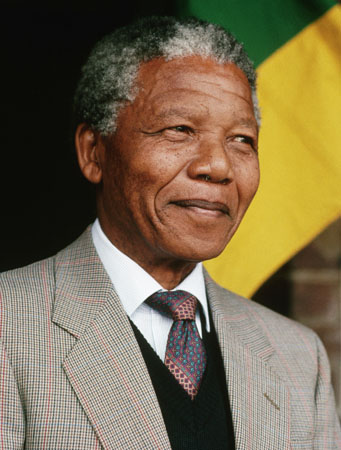Editor's note: Mike manages to squeeze in references to Nelson Mandela's autobiography and some intriguing questions about the nature of violence in video games into a few paragraphs. How many other video game articles you read this week can claim that? -Brett

As a teacher and a student of history, I find that I spend a lot of my time thinking deeply about world events and what relevance I can glean from history to use in my everyday life.
I'm currently reading Nelson Mandela's autobiography, Long Walk to Freedom. I was immediately intrigued by the way the South African president weaves his philosophy on politics and race relations into recounting his life story. For example, while Mandela has been acclaimed as a wonderful advocate of human rights, he makes a point of saying that he did not oppose violence in his struggle against apartheid if it would have been the best way to accomplish a goal. In my classroom, when we discuss historical events containing violence, many of my students have no problem thinking that violence can be an acceptable means of dealing with life.
I also spend a lot of my time playing video games, so I naturally have some of the same thoughts about my preferred entertainment. I've realized that video games often give us the impression that we can solve most of our problems through violence, from realistically dismembering foes in countless shooters to stomping on a Goomba's head in Super Mario Bros.
Take Assassin's Creed 2 as an example. In it, we get a destiny-driven reason for the conflict in which protagonist Ezio finds himself. The Templar order in the game commits terrible atrocities on Ezio and his family, but it took me a while to step back and realize that violence — particularly via assassination — is the only way gamers are allowed to solve his problems.
The idea of assassination as a means to eliminate conflict is an incredibly interesting one. To use Mandela again, he opposed the idea of assassination because it would not help the particular struggle he was involved with. Yet gamers have been conditioned to not think twice when given a weapon and presented with a character labeled "enemy." You must kill or be killed. Role-playing games sometimes play with this maxim, but it often turns into a bunch of anime cliches prompting players to sympathize with the "troubled" villain.

So, as always, when I wrestle with a problem of this nature, I turn it over to my fellow Bitmobbers. Is killing always the ultimate means to an end in games? Should Cloud and Sephiroth have gone to the negotiating table in Final Fantasy 7? Can we spin positive themes out from the violent story of Assassin's Creed 2 — ideas like protecting what one holds dear and the importance of family? Or am I blowing everything way out of proportion? Please share your thoughts.


